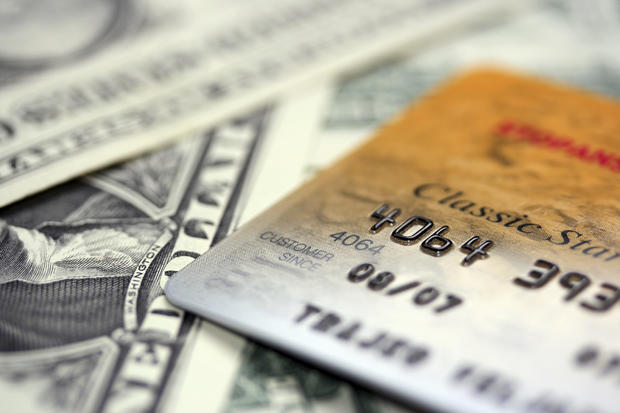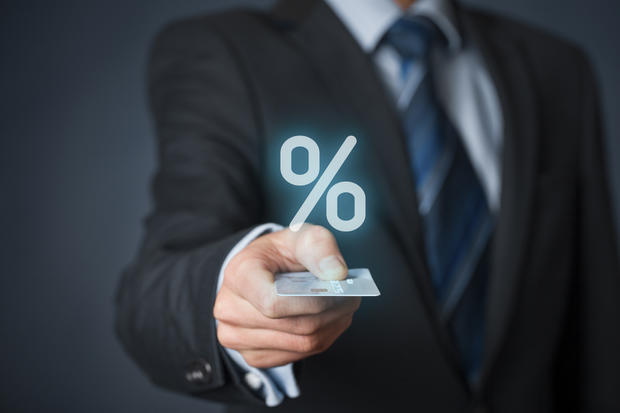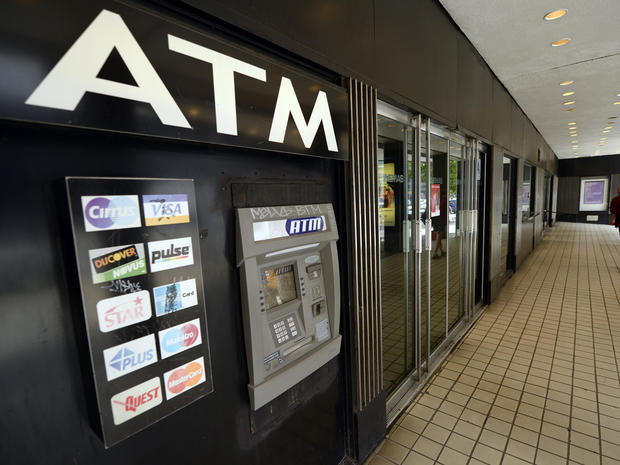5 credit card fees you don't see coming
By Caroline Banton/GOBankingRates
You might not know it, but credit card companies charge a number of fees for various types of transactions and services in addition to the interest you're paying on balances. But how much you're paying in fees and how often can be lost in the fine print.
It's smart to be aware of what fees you're paying so you can shop around for a card that offers a better deal.
Here are the five credit card fees that you might not know you're paying.
This article, 5 credit card fees you don't see coming, was originally published on GOBankingRates.com.
More from GOBankingRates:
1. Foreign transaction fees
Many people assume that using a credit card while traveling abroad is a good option. It avoids the need to carry cash, and the average credit card is accepted worldwide. However, your credit card company might charge you extra fees to convert U.S. dollars to the local currency. Foreign credit card transaction fees average around 2 percent to 3 percent.
And you might get dinged with a fee if you decide to leave your credit card in your wallet and use ATMs overseas. Wells Fargo charges $5 for each overseas ATM withdrawal, while banks such as Bank of America, Barclays and Deutsche Bank waive such fees.
Some consumers with good credit might be fortunate enough to receive offers for cards with no foreign transaction fees, such as American Express and Business Delta Skymiles. Many card issuers have eliminated these fees, as well.
Leslie Tayne, financial attorney for Tayne Law Group, said, "Before traveling, call your credit card company to find out what the foreign transaction fee will be. Compare to see if it will be cheaper to convert cash or to use your credit card." And find out if your bank is part of a global ATM network.
2. Protection services with fees
Many issuers provide credit protection services to consumers, but do not specify the cost. According to Tayne, "Some cards may come with a promotional ID theft or purchase protection service, but may not make clear what the fees to be incurred for this protection will be and when they will take effect."
Credit protection plans are often offered to cardholders at a monthly fee. These plans, which many banks are now shedding, are basically insurance in the event that you are ill, unemployed or face another type of financial hardship. The plan will prevent you from having to pay finance charges and will allow minimum payments while you are experiencing qualifying circumstances.
Wells Fargo offers a Credit Defense Platinum Service for a monthly fee of 39 cents per $100 of your ending monthly balance. If you have enrolled in such a costly plan, rethink whether you really need the insurance.
3. Over-the-limit and returned payment fees
If you exceed your credit limit, your card might not be denied when you make a purchase, but your issuer might add an over-the-limit fee. For example, the JPMorgan Chase Bank Future Shop Credit Card charges a $25 over-the-limit fee. If you don't monitor your balance, these fees can add up quickly.
A returned payment fee is a fee charged for a payment that is returned due to insufficient funds. $35 is a typical amount to pay for this type of fee. According to Discover, returned check credit card fees can also include an additional late fee if you do not follow up with a valid payment before the due date. To avoid late payment and over-the-limit fees, Discover recommends requesting a due date that you will remember and that fits with the money you have coming in each month. Also, sign up for automatic bill pay to ensure you're making regular payments to your card each month.
Some cards might waive your first offense, Tayne said. But "do not expect it to happen again," she added. "In order to avoid over-the-limit fees, keep track of your credit card balance. If you are making a large purchase and are already in the store, call the number on the back of the card while you are at the store to ensure you have the credit available to make the purchase."
4. Hidden interest charges with 0% APR
The APR is the annual percentage rate that the issuer will add to your balance. The higher the interest rate, the higher the charge will be. The amount you pay will depend on your credit rating, and those with good credit could pay closer to 12 percent for their cards, said Matt Schultz, senior industry analyst for CreditCards.com.
Andrew Josuweit, CEO of Student Loan Hero, said that promises of 0% APR by credit card issuers are often misleading. Josuweit warned, "Beware of 0% APR offers on credit cards, auto loans, furniture and other purchases. While it may be tempting, the lender can force you to pay interest at a rate that is often hidden in the terms and conditions if you don't pay off the entire balance before the end of the offered term."
In some cases, the 0% introductory APR will end early if you pay late. You might plan on taking six months to pay off the cost of a new TV, but if you miss a payment, you might start paying high interest early.
For example, Capital One VentureOne Rewards Credit Card offers 0% APR until September 2016, but the interest rate can then be up to 21.9% APR after that. There is also a fee for late payments of $35. The Citi Simplicity card offers 0% APR for 21 months, but the interest rate can peak at 22.9% APR after that.
And be careful if you don't use it: An inactivity fee or dormancy fee is sometimes charged by issuers. The Credit Card Act allows issuers to charge these fees for cards that have been inactive for over a year.
Read the fine print on any credit card application. Make payments on time and repay the balance by the due date.
5. Cash advance fees
A cash advance fee might be charged if you withdraw cash from an ATM using your credit card or write a check against your card. The Chase Freedom card charges an APR of 23.99% APR on cash advances. Discover charges 24.99% APR, as well as a fee of $10 or 5 percent, whichever is greater.
Issuers justify fees and high interest rates on cash advances because a cash advance is often a last resort for a high-risk consumer. According to Citi, a cash advance is considered a short-term loan, and the issuers must cover the cost of that risk.
To limit the fees associated with a cash advance, limit the number of transactions you make. Take all the cash you need at once so you're only paying one flat fee. Plan your repayments and build an emergency fund over time so that you can avoid the need for a cash advance in the future.
Jared Blank, chief marketing officer at DealNews, told GOBankingRates, "Some bank accounts will allow you to fund the opening of the account with a credit card. Some credit card companies will charge you a cash advance fee for funding a checking or savings account with a credit card that can be upwards of a $20 charge, plus 5 percent of the total charge. It's easy to avoid this: Don't fund a bank account with a credit card."





